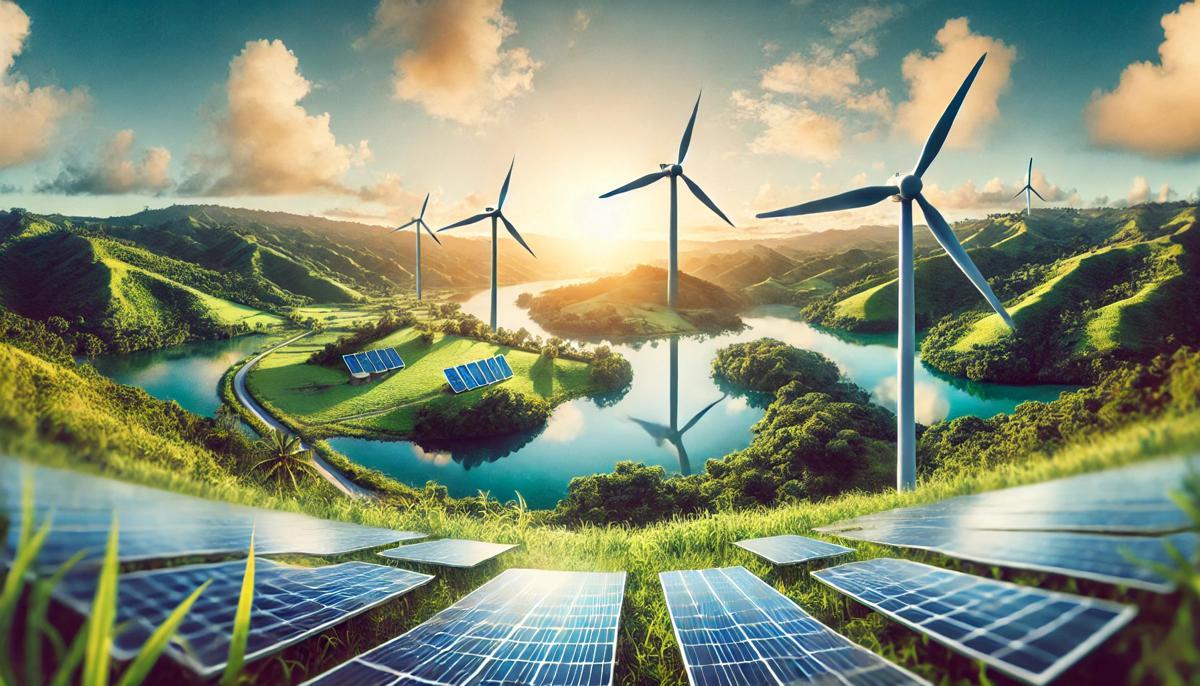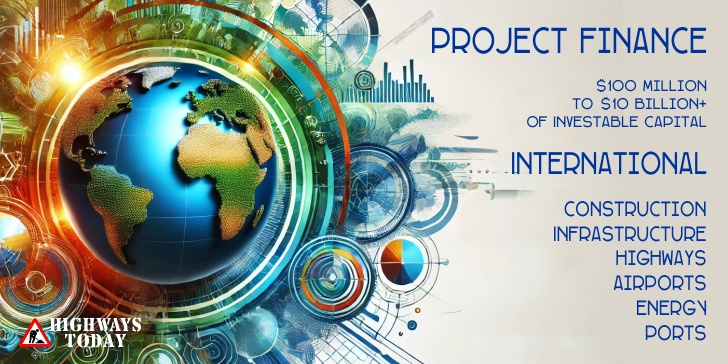ADB PPP Investment Powering Fiji’s Green Future
In a bold move towards sustainability, Fiji has taken significant strides to shift from fossil fuels to renewable energy sources, thanks in part to support from the Asian Development Bank (ADB).
Fiji’s National Energy Policy (2023–2030) envisions a future powered by affordable, resilient, and eco-friendly energy solutions. At the heart of this transformation lies ADB’s role as a transaction advisor to Energy Fiji Limited (EFL), facilitating investments in renewable resources and reducing the island nation’s reliance on imported fossil fuels.
With a mix of hydropower, solar, and wind power on the table, Fiji’s journey could serve as a model for other island nations grappling with energy challenges.
ADB’s Commitment to Resilience and Climate Adaptation
For Fiji, energy resilience isn’t just a policy goal—it’s a necessity. Subject to frequent climate-related disruptions, this small island nation relies heavily on external support to reinforce its energy infrastructure.
ADB, known for fostering regional stability, emphasises resilience in its Fiji country partnership strategy for 2024–2028. Aaron Batten, ADB’s Regional Director of the Pacific Subregional Office, highlighted this mission, stating: “ADB’s recently launched Fiji country partnership strategy for 2024–2028 emphasizes the importance of building Fiji’s resilience to economic and climate-related shocks.”
Through this partnership, ADB is helping EFL unlock the potential of solar and wind energy, fostering a competitive environment where independent power producers can enter the market.
These partnerships are expected to attract investments, reduce energy costs, and strengthen the nation’s resistance to climate vulnerabilities—a high priority for both ADB and Fiji.
From Hydropower to Solar and Wind
Hydropower has long been a primary energy source in Fiji, but the variability of water flow presents an ongoing challenge. Fossil fuels have traditionally filled the gap during dry spells, but the goal now is to minimise this dependency. By diversifying into solar and wind energy, Fiji hopes to stabilise its power supply and reduce its environmental footprint.
This strategic shift is supported by an upgraded network of transmission lines and de-risking instruments funded through the Climate Investment Funds Renewable Energy Integration program. These initiatives offer Fiji a unique chance to secure highly concessional funds for renewable energy integration, reducing financial risks for future investors.
Siddhartha Shah, ADB’s Director of the Office of Markets Development and Public-Private Partnership, underscored the potential benefits, saying: “ADB will work with EFL in structuring and procuring well-designed renewable energy projects which will lead to greater competition and lower power prices to the consumers in Fiji.” This focus on competitive pricing and diversified energy sources signals a new era for Fiji’s energy landscape—one where clean energy is affordable and accessible.
A Game Changer for Renewable Energy in Fiji
The ADB-EFL collaboration represents more than just a financial agreement; it’s a framework for fostering public-private partnerships (PPPs) that will drive long-term change. By enabling independent power producers to enter the Fijian market, the ADB-EFL initiative aims to stimulate innovation and drive down costs, benefiting consumers and the environment alike.
The benefits of PPPs in Fiji’s energy sector include:
- Enhanced Competition: Independent power producers introduce new perspectives and technologies, fostering competition.
- Lower Costs: A competitive market could lead to reduced electricity costs for Fijian households.
- Job Creation: New renewable energy projects can create jobs in construction, maintenance, and operation.
- Environmental Sustainability: With a focus on clean energy, PPPs can help reduce Fiji’s carbon emissions.
By reducing the entry barriers for private players, Fiji is poised to attract a variety of international and regional investors, bolstering its renewable energy capacity while meeting the growing energy demand.
Climate Investment Funds and Concessional Funding
ADB’s role in supporting Fiji’s energy transition goes beyond technical advisory—it includes unlocking financial resources crucial for sustainable development. The Climate Investment Funds Renewable Energy Integration program plays a pivotal role here by providing concessional financing that enables Fiji to expand its renewable energy projects with reduced financial risk.
By drawing from a pool of concessional funds, Fiji can confidently pursue ambitious energy goals without imposing a heavy financial burden on the government or its citizens.
The importance of these funds was highlighted during the recent agreement signing, which took place in the presence of ADB Senior Director for Energy Priyantha Wijayatunga and EFL Board members. This high-profile meeting underlined the significance both ADB and EFL place on developing a financially sustainable, climate-resilient energy infrastructure.
A Legacy of Regional Development
ADB’s involvement in Fiji’s renewable energy sector reflects its broader commitment to the Asia-Pacific region’s development. Established in 1966, ADB has grown into a powerful force for economic and social change across Asia and the Pacific, with a mission of eradicating extreme poverty. With 69 member countries, 49 of which are from the Asia-Pacific, ADB has facilitated various infrastructure projects that have transformed economies and improved lives. This latest venture with EFL is an extension of ADB’s longstanding dedication to sustainable development and resilience-building across the Pacific.
ADB’s commitment isn’t limited to energy—it spans health, education, infrastructure, and financial inclusion, offering support that has empowered communities and fostered growth. Its partnership with Fiji represents just one of the many ways in which ADB’s resources and expertise are helping to drive economic and social resilience.
A Blueprint for Sustainable Island Nations
The renewable energy transition in Fiji, led by ADB and facilitated through public-private partnerships, is more than just a national effort—it’s a blueprint that other island nations could follow. By demonstrating how concessional financing and PPPs can overcome the barriers to sustainable energy, Fiji is setting a precedent for regions with similar geographic and economic challenges. As ADB and EFL continue to develop and expand renewable energy projects, other small nations will be watching closely, seeking to replicate Fiji’s success in achieving a sustainable energy future.
In the words of Siddhartha Shah, this partnership aims “to lead to greater competition and lower power prices,” proving that sustainable energy isn’t just a goal but a feasible, affordable reality for all.
A Positive Step Forward
Fiji’s renewable energy journey, guided by ADB’s expertise and strengthened by public-private partnerships, offers a hopeful narrative for the future. As the country continues to make strides in renewable energy, its success story could pave the way for others, showing how resilience, partnership, and innovation can transform challenges into opportunities.
With a clear commitment to sustainable energy, Fiji stands as a beacon of progress for other island nations striving toward a greener tomorrow.






























